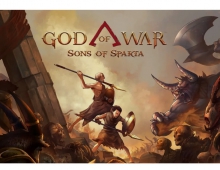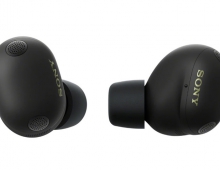
More Electronics Firms Join Debate to End DVD War
More electronics companies have joined talks between Sony and Toshiba to develop a common format for next-generation DVDs and end a fierce battle, industry sources said on Friday.
Other key companies involved in the format war, including Matsushita's Panasonic and Netherlands-based Philips are also studying ways to end the three-year stand-off that is threatening to stifle the industry's growth.
But sources close to the electronics companies said it was still early days, and that the discussions would take a long time, while adding that a positive outcome was not guaranteed.
"Discussions are taking place, but it's very complex, both in terms of technology but also because so many companies have a stake in this," one source told Reuters.
At the core of both formats are blue lasers, which have a shorter wavelength than the red lasers used in current DVD equipment, enabling thinner lines and higher density of information on a single 12 centimeter disc. Higher storage DVDs are needed for high-definition movies and television. The companies which contribute to the next DVD standard can expect hundreds of millions, or even billions of euros (dollars) in royalty income over coming decades.
Panasonic said the Blu-ray standard it supports is the best format for next generation optical disc, but a spokesman added his firm "remains open to adopting appropriate technologies for the best interest of consumers and the marketplace."
Philips declined to comment.
Sony and Toshiba said on Thursday they would work toward a common format in order to avoid a drawn-out fight that would confuse consumers and hinder the industry's development, just like the spat between the VHS and Betamax video tape formats two decades ago.
In an interview with Reuters earlier this month in France, Yukinori Kawauchi, the general manager in charge of the new format for Sony, had said his company was "open to discussions" on creating a single technology standard.
NEW CHIEF EXECUTIVES
The about-turn coincides with the recent appointment of new chief executives at both Sony and Toshiba who do not have a strong personal interest in either format and can be more flexible.
The Blu-ray technology is backed by a group including Sony, Dell Inc., Samsung Electronics Co. Ltd., Philips Electronics NV and Matsushita. Toshiba, with NEC Corp. and Sanyo Electric Co. Ltd., has been promoting a technology called HD DVD.
Electronics companies hope the technology will spark a new wave of purchases for DVD players, and Hollywood's movie studios hope to benefit from a new round of buying of advanced DVDs.
Unlike the original DVD format dispute between 1993 and 1995, which was eventually resolved in a few months when the Sony-Philips camp agreed to develop a single standard with a camp around Toshiba and Warner, the current alliances involve many more companies, including those from the personal computer industry and Hollywood.
"There's a lot of powerplay internally. The managers may like the idea of a single standard, but the companies don't want to throw away everything they have developed," one source said.
Sony and Toshiba have reportedly already begun briefing Walt Disney Co. and other Hollywood movie studios for approval of a unified standard, paving the way for the signing of an agreement between the rival camps. A unified format would be favorable for profitability across the industry because consumers would be more comfortable about buying next-generation products and manufacturers could achieve lower production costs.
The different formats for recordable DVDs, which were developed in the late 1990s, have made drives more expensive. While the discussions to unify the format take place, preparations to introduce different HD-DVD and Blu-ray equipment later this year continue, the companies have said.
But sources close to the electronics companies said it was still early days, and that the discussions would take a long time, while adding that a positive outcome was not guaranteed.
"Discussions are taking place, but it's very complex, both in terms of technology but also because so many companies have a stake in this," one source told Reuters.
At the core of both formats are blue lasers, which have a shorter wavelength than the red lasers used in current DVD equipment, enabling thinner lines and higher density of information on a single 12 centimeter disc. Higher storage DVDs are needed for high-definition movies and television. The companies which contribute to the next DVD standard can expect hundreds of millions, or even billions of euros (dollars) in royalty income over coming decades.
Panasonic said the Blu-ray standard it supports is the best format for next generation optical disc, but a spokesman added his firm "remains open to adopting appropriate technologies for the best interest of consumers and the marketplace."
Philips declined to comment.
Sony and Toshiba said on Thursday they would work toward a common format in order to avoid a drawn-out fight that would confuse consumers and hinder the industry's development, just like the spat between the VHS and Betamax video tape formats two decades ago.
In an interview with Reuters earlier this month in France, Yukinori Kawauchi, the general manager in charge of the new format for Sony, had said his company was "open to discussions" on creating a single technology standard.
NEW CHIEF EXECUTIVES
The about-turn coincides with the recent appointment of new chief executives at both Sony and Toshiba who do not have a strong personal interest in either format and can be more flexible.
The Blu-ray technology is backed by a group including Sony, Dell Inc., Samsung Electronics Co. Ltd., Philips Electronics NV and Matsushita. Toshiba, with NEC Corp. and Sanyo Electric Co. Ltd., has been promoting a technology called HD DVD.
Electronics companies hope the technology will spark a new wave of purchases for DVD players, and Hollywood's movie studios hope to benefit from a new round of buying of advanced DVDs.
Unlike the original DVD format dispute between 1993 and 1995, which was eventually resolved in a few months when the Sony-Philips camp agreed to develop a single standard with a camp around Toshiba and Warner, the current alliances involve many more companies, including those from the personal computer industry and Hollywood.
"There's a lot of powerplay internally. The managers may like the idea of a single standard, but the companies don't want to throw away everything they have developed," one source said.
Sony and Toshiba have reportedly already begun briefing Walt Disney Co. and other Hollywood movie studios for approval of a unified standard, paving the way for the signing of an agreement between the rival camps. A unified format would be favorable for profitability across the industry because consumers would be more comfortable about buying next-generation products and manufacturers could achieve lower production costs.
The different formats for recordable DVDs, which were developed in the late 1990s, have made drives more expensive. While the discussions to unify the format take place, preparations to introduce different HD-DVD and Blu-ray equipment later this year continue, the companies have said.





















